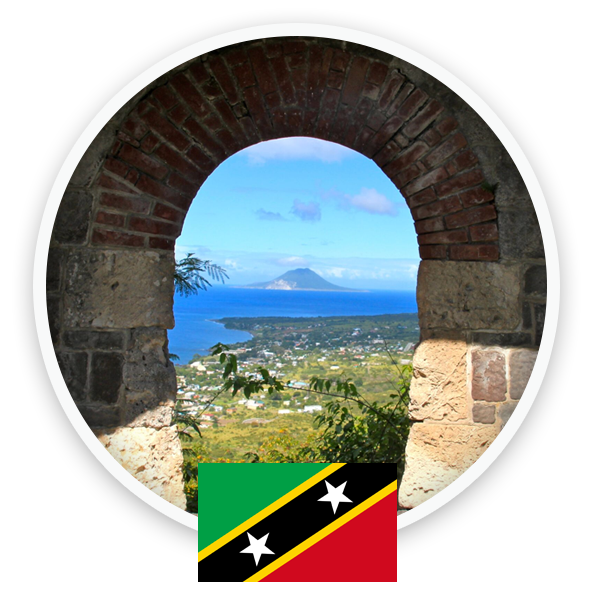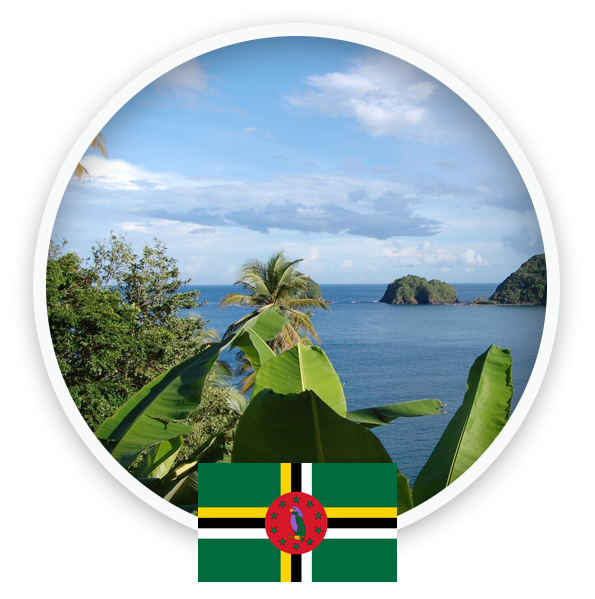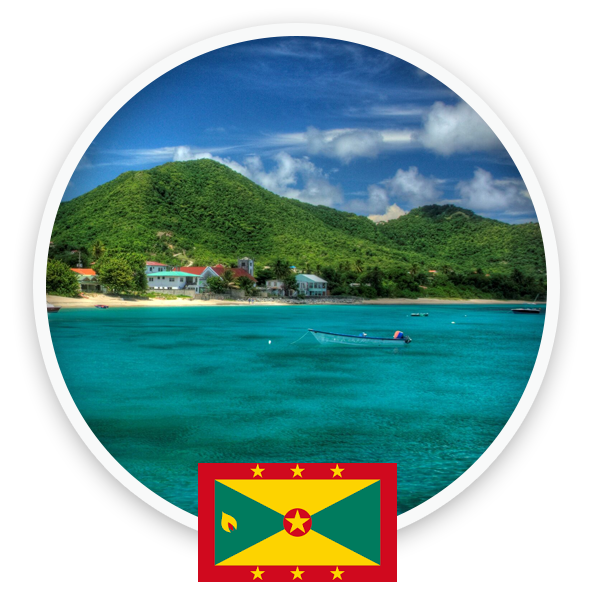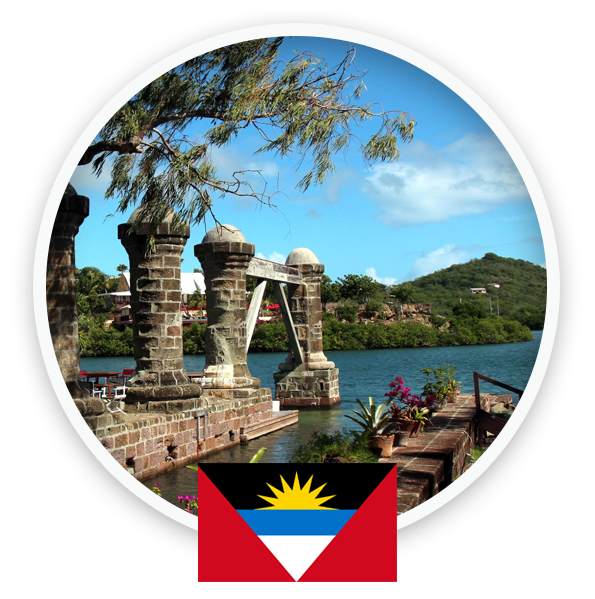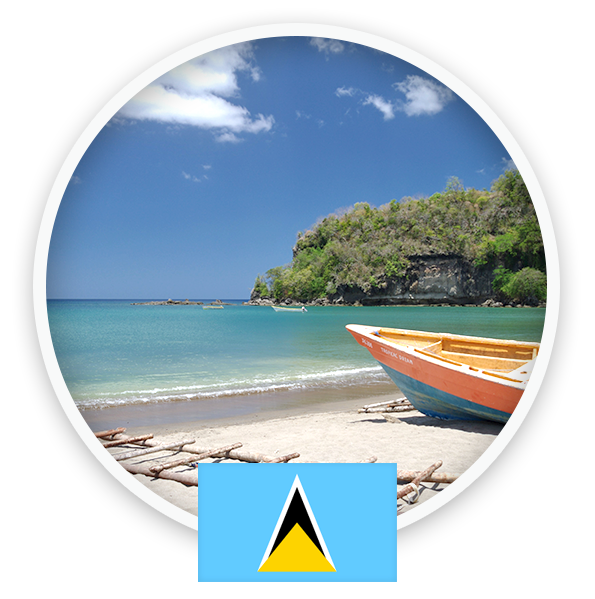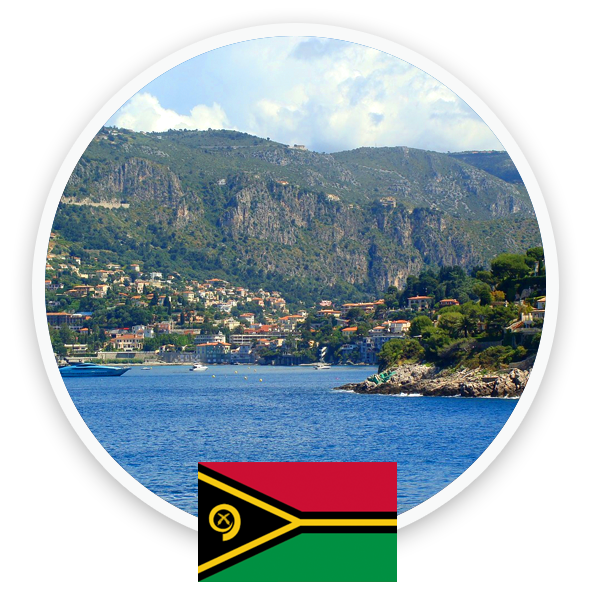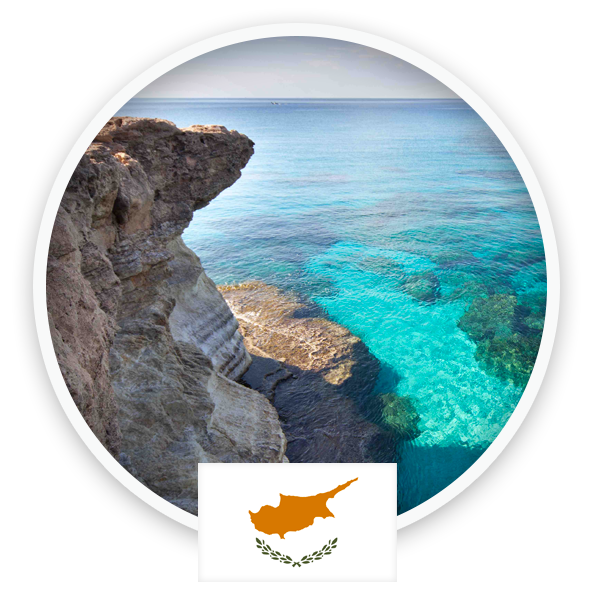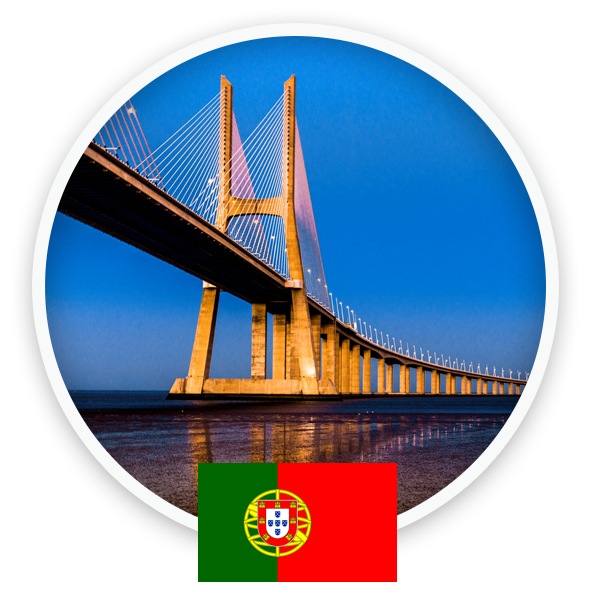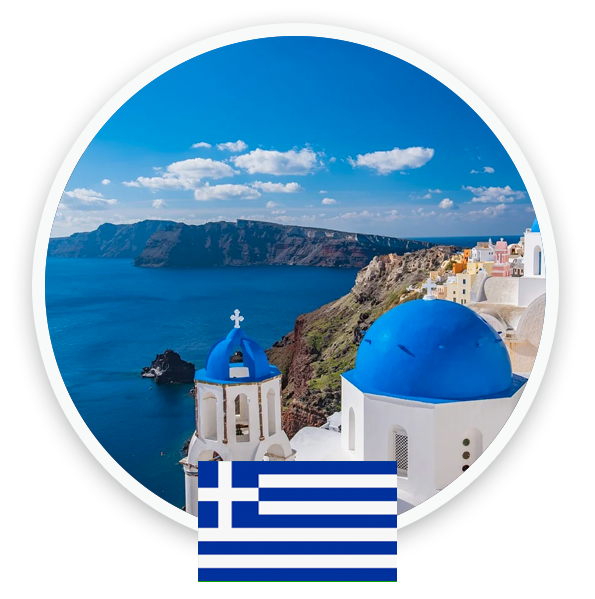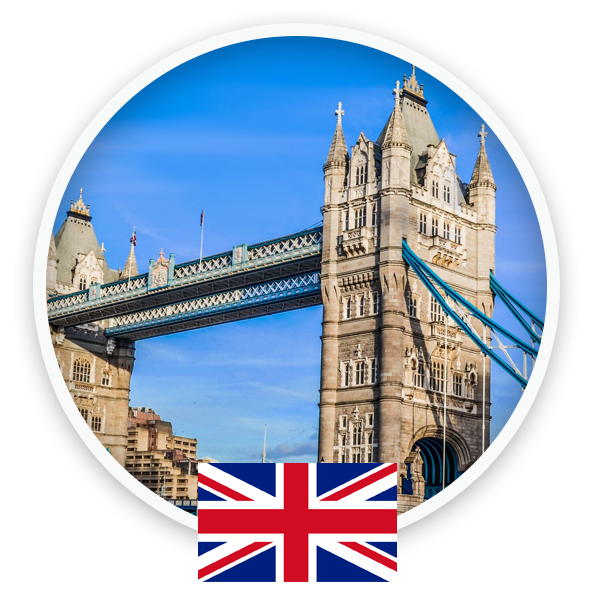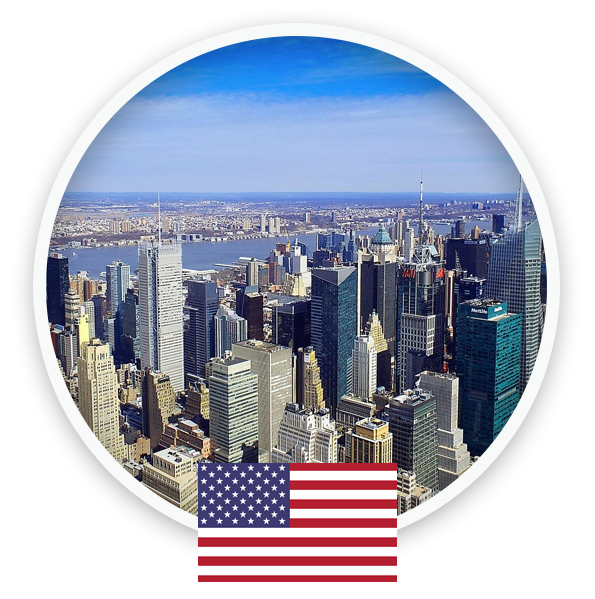Dominican Citizenship
Are you thinking about obtaining citizenship and a second passport? Then look no further. Our expert team can help you through your application to become a Dominica Citizen by Investment.
The Commonwealth of Dominica is an island nation in the Lesser Antilles region of the Caribbean Sea with a population of 73,126 and an area of 751 sq. km. An English speaking country, Dominica was a British colony until its independence in 1978. Often referred to as the Nature Island, tourism and agriculture are large contributions to the country's economy.
Commonwealth of Dominica, on November 3, 1493, Christopher Columbus named the island after the day of the week on which he spotted it, a Sunday (“domenica” in latin). This place is known as the “Nature Island” is literally covered with thick green jungle, punctuated by sharp-edged volcanic peaks, mountains, lakes, rivers, hot springs and waterfalls and a wide variety of green vegetation and wildlife. It is a popular cruise destination and a magnet for hikers and nature enthusiasts. The offshore reefs attract divers from around the world.
Enquire Now
Dominica Citizenship – Benefits
- Enjoy visa free travel to 140 destinations including Europe’s Schengen Area, Hong Kong, and Singapore
- Dominica recognizes dual citizenship
- No physical residency requirements
- Inclusion of dependent children of up to 18 years old
- No minimum level of education required
- No management experience required
- No taxes for non-residents
To qualify under the Economic Citizenship Program for Dominica, applicants need to be of outstanding character with:
- No criminal record
- Excellent health
- Basic knowledge of English
- Make a direct non-refundable investment with the government of Dominica
Dominica Economic Citizenship Program
Dominica Economic Citizenship Program is tailored to high net worth clients and is based on Section 101 of the Constitution and Sections 8 and 20 (1) of the Citizenship Act. Most recently, the Dominica Economic Citizenship program got a boost, as the European Commission has decided to grant visa free travel to the Schengen area to 16 Island Nations (including Dominica) in a bid to spur economic growth in the EU.
Option I: SINGLE APPLICANT
A single applicant will be required to make an investment of US$100,000.
Option II: FAMILY APPLICATION I
An investment of US$150,000 qualifies the applicant and his or her spouse for citizenship.
Option III: FAMILY APPLICATION II
1) Family of four including the main applicant, the spouse of the main applicant, and two other dependents other than a dependent sibling: USD$175,0000
Sibling of the main applicant or of the spouse of the main applicant aged 18-25: USD$50,000
Any dependent other than the spouse of the main applicant or a sibling of the main applicant or of the spouse of the main applicant aged 18-25: USD$25,000 each
Option IV: REAL ESTATE OPTION
- Minimum investment US$200,000
- US$25,000 for a single applicant
- US$35,000 for a family of up to four persons, including the main applicant and up to three dependents other than a dependent sibling
- US$50,000 for a family of up to six persons, including the main applicant and up to five dependents other than a dependent sibling
- US$70,000 for a family of seven persons or more, including the main applicant and at least six dependents other than a dependent sibling
- US$50,000 for a sibling of the main applicant or of the spouse of the main applicant aged 18-25
- US$25,000 for a sibling of the main applicant or of the spouse of the main applicant below the age of 18
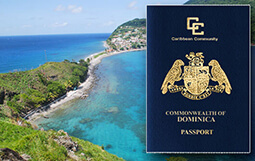
Dominica Frequently Asked Questions
About Dominica
Dominica is a mountainous Caribbean island nation distinguished by geothermal hot springs. The capital city is Roseau and the population is approximately 72,000.
People
The island’s population is 100,000. Roman Catholics account for 53% of the population with a further 33.2% Protestants and 13.8% Anglicans. Although English is the official language, French patois is spoken widely and 96% of the total population are literate.
Language
The language is English. French Patois is also spoken.
Weather: When is the best time to visit?
The dry season is usually between January and June, with the wettest months falling between August and October. The peak of hurricane season is late August to early September.
Capital
The Capital and largest city of Dominica is Roseau. It is situated on the west coast of the island and has the large percentage of the whole islands’ population. It is the main commercial city and its main hub of activity. Roseau is the main port of Dominica and received hundreds of visitors every week who arrive on the ferries during a break from their Caribbean cruise. It is a colorful town with many colonial buildings and plenty architecture.
Economy
Dominica has a stable economy, relying mainly on agriculture and tourism. Agricultural produce includes bananas, cocoa, nutmeg, mace, citrus, avocados, coffee, sugarcane and many exotic spices. The currency is the Eastern Caribbean (EC) dollar which is linked to the US dollar. The Exchange Rate is 1 US $ = 2.7 EC $.Major credit cards are accepted at most hotels, car rental companies and shops. Travellers cheques are accepted throughout the Island.
How do I get there?
By Air: International flights from US and Europe are connected to the island through hubs in Antigua, Barbados, St. Maarten, Guadeloupe and Martinique. The Leeward Island Transport (LIAT) and Caribbean Star usually complete the Dominican leg. LIAT and American Eagle also provide connecting flights to the island out of Puerto Rico. By Sea: A 300-seat catamaran operated by L'Express des Îles ferries passengers between Dominica, Guadeloupe, Martinique and St. Lucia. The ferry service in Dominica also includes 400 capacity Catamaran operated by Jeans, traverses from Guadeloupe to Dominica into the town of Portsmouth.
Will I be liable to any taxes in Dominica?
Under the terms of Dominica Economic Citizenship Program you will not be liable to any wealth, gift, inheritance, income tax, foreign income or capital gains tax if you are non-resident. You are only liable to pay personal tax if you reside in the country.
How safe is the island?
Dominica may seem like heaven but it is still a normal country. Although the country enjoys one of the lowest crime rates in the Caribbean, visitors must exercise reasonable precautions for their personal safety and property like anywhere else in the world.
